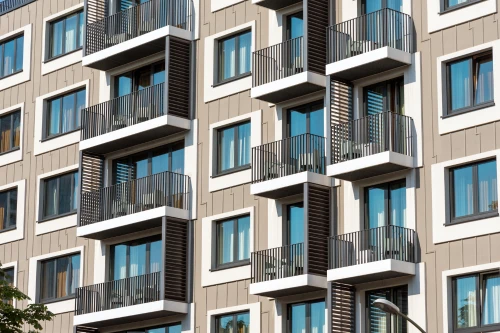Where owning rental property is harder, riskier, and less profitable

The 10 Worst States To Be a Landlord
In the 10 worst states to be a landlord, it can be tough between taxes, tenants who don’t live up to their lease agreements, maintenance woes, and the cost of maintaining a property.
But there are some states where—due to anti-landlord legislation, property tax rates, rent-control laws or congested court systems—there is added pressure on landlords, property owners and property managers. TurboTenant, a property-management software company, compiled the 10 worst states in which to be a landlord based on those factors and more.
Based on these findings, here are 10 states where owning rental property is harder, riskier, and less profitable.
Criteria for Ranking States
- Anti-landlord legislation: Some states have legislation that favors tenants while presenting hurdles for landlords. A prominent example is the no-fault eviction ban, which prevents landlords from ending leases without cause.
- Rent-control laws: What landlord wants the state to tell them how much they can charge for rent? Rent-control laws restrict when and how much landlords can increase rent, which limits their ability to adjust to market conditions or rising costs.
- Eviction timeline and court backlog: States with slow, congested court systems or lengthy eviction-notice requirements can leave landlords stuck with nonpaying tenants for months.
- Property tax rate: Yearly tax bills that ravage your revenue make it tough to turn a profit.
- Rental yield: When rent barely covers the mortgage, taxes, and upkeep, landlords are stuck treading water until it’s time to sell. Low rental yields make it tough to turn a profit, let alone save, reinvest, or expand your portfolio.
10 worst states to be a landlord:
No. 10: Connecticut
The state has a 1.92% property tax rate (the third highest in the nation) and evictions that often drag on for months. Also, landlords can’t end a month-to-month lease without just cause. And while no statewide rent-control law exists, several cities still cap rent hikes they consider excessive.
No. 9: Massachusetts
In Massachusetts, landlords can’t charge a late fee until rent is more than 30 days overdue. Adding in the high cost of living and proposed rent caps in Boston complicates matters. And eviction proceedings in Massachusetts can be a nightmare.
No. 8: Minnesota
A Minnesota landlord must issue a 14-day notice (or a 30-day notice in Minneapolis) before initiating the eviction process. Also, late fees are capped at 8%. While there’s no statewide rent control, St. Paul limits rent increases to 3% a year, and Minneapolis has considered similar restrictions in recent years.
No. 7: Maryland
Maryland’s two most populous counties, Montgomery and Prince George’s, cap rent increases at 3% plus inflation, or 6%, whichever is lower. Maryland lawmakers also are pushing for “good cause” eviction rules that make it harder to terminate leases without a qualifying reason. If passed, the law could force landlords to renew leases with problem tenants.
No. 6: Illinois
Illinois landlords can’t turn down applicants based on how they pay rent, whether through housing vouchers, Social Security, or child support, even if they’ve had trouble collecting those payments in the past. Illinois could move higher up this list if proposed rent-control measures become law. A significant backlog of eviction cases at the court level means that 2-year evictions are a very real possibility, plus this is a high property-tax state.
No. 5: Washington
Rent control, called rent stabilization, limits rent increases for existing tenants in Washington state to 7% plus inflation or 10%, whichever is lower. Landlords can still adjust rent by higher amounts for new tenants. It also limits rent increases for manufactured homes to 5%. Washington has laws that make it hard to remove tenants who stop paying but refuse to leave. Just-cause eviction rules make it hard to move on from tenants, and strict notice requirements add layers of complexity to the eviction process.
No. 4: Oregon
Oregon’s rent-control restriction is 7% plus the annual 12-month change in the Consumer Price Index for all urban customers. During any tenancy, other than week-to-week, the landlord may not increase the rent more than once during any 12-month period. Oregon was the first state in the nation to pass state-wide rent control.
No. 3: New Jersey
Although New Jersey has no statewide rent control, more than 100 local jurisdictions enforce their own ordinances, creating a complex spiderweb of legislation that can baffle even longtime Jersey landlords. In addition, New Jersey imposes the highest property tax rate in the country (2.49%), strict just-cause eviction laws, and painfully slow court processes.
No. 2: New York
New York’s statewide regulations limit rent increases (even after significant improvements) and prevents landlords from resetting rent between tenants. New York’s 2024 “Good Cause Eviction” law requires landlords to have a legally valid reason to terminate a lease. Additionally, tenants can challenge rent hikes they dislike, leading to drawn-out legal battles and preventing rent from keeping pace with the market.
No. 1: California
California enforces strict rent control, capping increases at 5% plus inflation or 10%, whichever is lower. But what really puts California at the top of the “worst” list is taxes. Rental income can get hit with California’s income tax, up to 13.3%. California is also one of the toughest places to deal with squatters.
Source: TurboTenant















 Accessibility
Accessibility